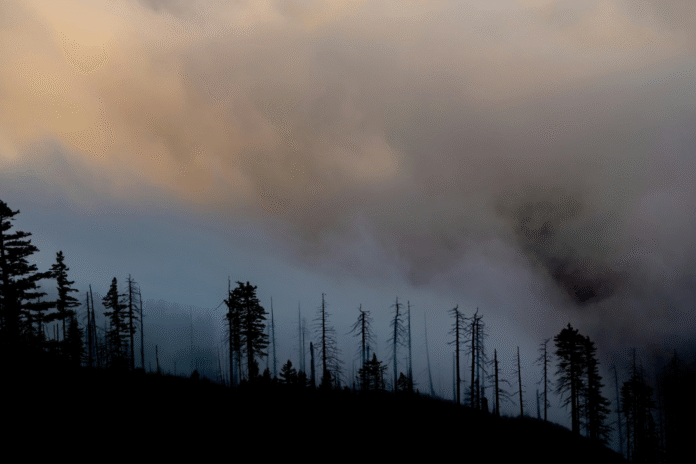
September 10, 2025
RED FM News Desk
A peer-reviewed study published in Nature has found that smoke from Canada’s record-breaking 2023 wildfire season was linked to approximately 82,100 premature deaths and 5,400 acute deaths worldwide.
The study used multiple computer models and data sources to assess the global health impact of fine particulate matter (PM2.5) from the wildfires. Researchers estimate that 64,300 of the premature deaths occurred in North America and Europe, including 33,000 in the United States and 8,300 in Canada.
Canadian co-author Michael Brauer, a professor at the University of British Columbia’s School of Population and Public Health, called the findings a “wake-up call,” warning that wildfire smoke will pose an even greater health risk as climate change worsens fire seasons.
The period between June 26 and July 7, 2023, was particularly hazardous, contributing to an estimated 5,400 acute deaths in Canada and the U.S. alone.
In total, over 6,000 fires burned 150,000 square kilometers across Canada in 2023—making it the country’s worst wildfire season on record. According to Natural Resources Canada, the 2024 season is now the second worst, with more than 83,000 square kilometers burned so far.
The study highlights that while Canada’s fires made up 13% of global wildfire-related PM2.5 exposure, their impact was disproportionately large due to widespread smoke dispersion across densely populated areas in North America and western Europe.
Brauer emphasized that the smoke’s health effects were not limited to high-concentration areas. Even low levels of exposure in densely populated regions, like parts of Europe, contributed to the elevated mortality figures.
He also noted that wildfire smoke exacerbates existing health conditions such as heart and lung disease, leading to earlier deaths, and stressed that climate change—driven by global greenhouse gas emissions—is the underlying force making such extreme fire seasons more common.







